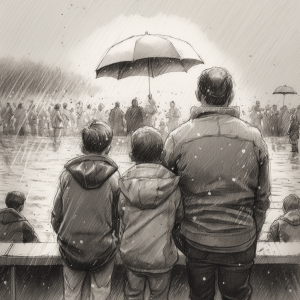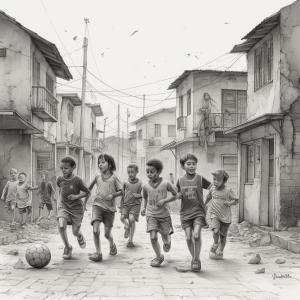Soccer Psychology.
The biggest problem I have found facing most young soccer players is a distinct lack of real belief or confidence in their own ability. I’m not talking about shyness or the external appearance of the children, but the belief that they can become a great soccer player one day. Lacking confidence or belief creates a mental atmosphere of fear, which left to its own devices can grow into major problem not only in Soccer but in life.
A child that is suffering from a lack of confidence or belief can be easily found within a social group or team environment. The symptoms are pretty text book, but for the unaware parent or coach, these children seem just normal. The most common problems or symptoms that are child will exhibit are
- A deep inner feeling of not being good enough.
- Extreme nervousness.
- Negative thoughts and lack of motivation.
- Low energy levels.
- Worrying about the simple things.
- Not looking forward to training or soccer matches.
- Jealousy of other players or team mates.
- Easily intimidated, even by smaller children.
When young children or soccer players begin to believe in themselves, the above symptoms often disappear completely or the magnitude of each feeling is significantly reduced. When a child is guarded from the insecurities of fear and a lack of confidence, the child is allowed to feel positive and confident. A child that is feeling confident and happy will always outperform a child that lacks confidence or belief.
Feeling nervous before a big game doesn’t necessarily mean your child or player lacks belief. The big occasions make even the biggest professional nervous. Nervousness is a good indicator that you are psyched and ready to compete. When a child continually looks nervous, even after a soccer match, is when you should be concerned. Does your child or player lack self esteem ? Does your child or player have a poor self-image?
I would argue that the most important psychological discovery of modern times and in sport, is the discovery of the self-image. By understanding your self-image and the image of your child or player, you can learn to modify and manage this image to suit your purpose. By protecting your child’s image, the child can gain incredible confidence and power. Each of us carries within us a mental picture of ourselves. This self image is our own conception of the certain person we are. The self image then controls the way you feel and the things you can accomplish.
All your actions, feelings, behaviour and abilities are consistent with your self image. You will act like the certain person you conceive yourself to be. If a child is exposed to negativity or fear, the child will inevitably display these emotions. When watching youth soccer or kids playing in the street, it is easy to pick out the child that has a poor self image or lacks confidence. Could this be your child?
When this self image is intact and secure, you feel good. When it is threatened, you feel anxious and insecure. When it is adequate and positive and you feel proud, you feel self confident. You feel free to be yourself and to express yourself. Which self image do you want your child to develop?
How To Develop A Positive Self-Image For Kids In Soccer.
- Be your child’s best fan and support them unconditionally.
- Always focus on your child’s positives and strengths.
- Do not criticise your child, the coach or any other parent at the soccer.
- Encourage your child to speak with the coach and with other parents.
- Help your child focus on their performance rather than focus on the end result, winning or losing.
- Support and encourage your child, but make an effort to support all the players in your child’s squad. Do not criticise anyone. Remember people don’t mean to make mistakes.
- Never criticise the opponents, their parents or their officials.
- And always remember to Smile and use positive reinforcement when dealing with children.



Leave a Reply